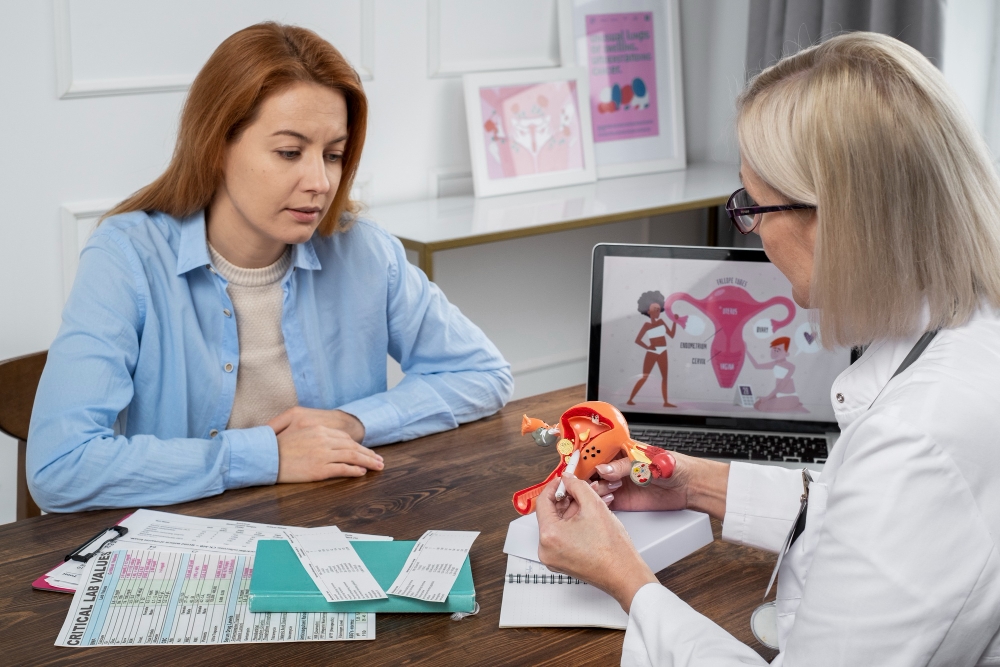Is It Possible to Get Pregnant on Days Other Than Ovulation?


| Time in Cycle | Likelihood of Pregnancy |
|---|---|
| Fertile Window (5 Days Before Ovulation) | High likelihood, as sperm can survive up to five days and fertilize the egg when ovulation occurs. |
| Ovulation Day | Highest chance of conception, as the egg is released and viable for fertilization. |
| Days After Ovulation | Low likelihood, as the egg’s viability declines quickly (12-24 hours post-release). |
| Days Outside Fertile Window | Very low likelihood, as sperm typically die before the next ovulation occurs. |
For couples trying to conceive or avoid pregnancy, timing is essential. While ovulation marks the most fertile period, many wonder if pregnancy is possible on other days of the cycle. This article explores the factors that contribute to conception chances outside of ovulation and why sperm survival plays a crucial role in these scenarios.
How Ovulation and the Fertile Window Work
Ovulation is the release of a mature egg from the ovary, which occurs approximately in the middle of a woman’s cycle, around Day 14 in a 28-day cycle. However, timing can vary from woman to woman, and the egg remains viable for only 12-24 hours after ovulation.
The fertile window includes the five days before ovulation and the day of ovulation itself. During this time, conditions are optimal for sperm to survive and fertilize the egg:
- Sperm Longevity: Sperm can live up to five days in the female reproductive system, so having intercourse during the fertile window means viable sperm are present when the egg is released.
- Cervical Mucus: During the fertile window, cervical mucus becomes thinner and more slippery, creating an ideal environment for sperm to survive and reach the egg.
Pregnancy Possibility Before Ovulation
Conception is possible in the days leading up to ovulation due to sperm’s ability to survive for up to five days in the female reproductive tract. Here’s how:
- Days 1-2 Before Ovulation: This is a highly fertile period since sperm are likely to be viable when ovulation occurs.
- 3-5 Days Before Ovulation: Although less likely than during ovulation, there’s still a good chance of conception because some sperm can survive until the egg is released.
If intercourse occurs up to five days before ovulation, sperm may still be present and able to fertilize the egg when it’s released.
Can You Get Pregnant After Ovulation?
The likelihood of pregnancy drops significantly after ovulation since the egg is viable for a limited time:
- 12-24 Hours Post-Ovulation: This is the only time conception may still occur after ovulation, as the egg is still viable for fertilization within this timeframe.
- More Than 24 Hours Post-Ovulation: After 24 hours, the egg disintegrates if not fertilized, making conception impossible until the next cycle.
Low-Conception Days: Period and Luteal Phase
The days far from ovulation have a very low likelihood of conception due to sperm’s limited lifespan and lack of a viable egg:
- During Menstruation: For women with regular cycles, conception during menstruation is unlikely. However, women with shorter cycles who ovulate shortly after their period may still have a low chance of conception if sperm survive for several days.
- Luteal Phase (Post-Ovulation): After ovulation, progesterone levels rise, thickening cervical mucus and creating a less hospitable environment for sperm. Conception is highly unlikely during this phase until the next ovulation.
Factors That Influence Conception Chances on Non-Ovulation Days
Several factors can slightly increase the chances of conception on days other than ovulation, including:
- Irregular Cycles: Women with irregular cycles may ovulate unpredictably, which can make timing less certain.
- Sperm Health: Sperm viability can vary based on health factors. Healthier sperm may survive closer to the five-day maximum, increasing chances of conception during the days leading up to ovulation.
- Shorter Cycles: Women with shorter menstrual cycles may ovulate earlier, meaning intercourse at the end of a period could coincide with ovulation for some women.
Conclusion
While the highest chances of pregnancy occur during ovulation and the fertile window, conception is still possible in the days leading up to ovulation due to sperm’s ability to survive up to five days. However, after ovulation, pregnancy is unlikely within the same cycle. Understanding these timing nuances can help couples plan or prevent pregnancy more effectively.
Contact Us if you have questions about ovulation, fertility timing, or optimizing your chances of conception. We’re here to help with science-backed guidance and support.
FAQs
-
Can you get pregnant right after your period?
- Yes, especially for women with shorter cycles, as ovulation may occur shortly after menstruation, allowing sperm to fertilize an egg.
-
How long does the egg remain viable after ovulation?
- The egg is viable for 12-24 hours after ovulation, after which it disintegrates if not fertilized.
-
Is pregnancy possible outside the fertile window?
- Pregnancy is very unlikely outside the fertile window, as sperm usually cannot survive until the next ovulation.
-
How long do sperm live inside the female body?
- Sperm can live up to five days in the female reproductive tract under optimal conditions, such as fertile cervical mucus.
-
Does having sex every day increase chances of conception?
- Having sex every day during the fertile window can increase chances, but every other day may be just as effective for couples with healthy sperm counts.



